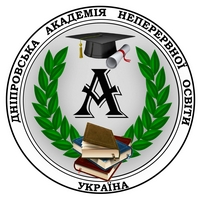EDUCATIONAL OFFERS OF MODERN ALTERNATIVE SCHOOLS
Abstract
Modern Ukrainian education finds new forms and methodseducational activity, which helps to more fully reveal
the child's potential, his creative abilities, free from authoritarian influences on the personality and maintain a balance between external and internal factors of his development, because the Law «On Education» refers to the comprehensive development of a person as an individual and the highest value of society, the need complex personality development. Taking into account the changes and the development of the quality of education, under the influence of the urgent need for interactive elevation, the framework of the educational process is expanding, as a result, the list of forms and means of education, as well as their definition, is also changing. New educational standards have a significant impact on reforming the educational sphere: new information technologies that contribute to the openness and accessibility of education: a new understanding of the content of general secondary education, improving the quality and competitiveness of education in new economic and socio-cultural conditions. Society needs a new school philosophy that would change not only its organizational, but also its substantive aspects. The article considers an important problem of today, such as alternative education. Alternative education provides an opportunity to experience a completely different quality of education from the one we know, requires non-standard thinking, breaking through the schemes on which the traditional education system is based. The existence of alternative education makes it possible to enrich the current educational environment with innovations, it is it that departs from the traditional system and tests experimental creative achievements and provides new perspectives for the schools of the future. Alternative education is based on the free development of the child. Alternative education sets itself the goal of preparing a young person for life and creating conditions for him to be able to realize himself.
References
2. Гончаренко С. У. Український педагогічний енциклопедичний словник. Рівне : Волинські обереги, 2015. 552 с.
3. Гузик М. П. Комбінована система організації навчально-виховного процесу в загальноосвітній школі : автореф. дис. ...канд. пед. наук : 13.00.09. Ін-т педагогіки, АПН України. Київ, 2004. 25 с.
4. Закон України «Про освіту». Відомості Верховної Ради України. 2017. № 38‒39. URL : https://zakon.rada.gov.ua/laws/show/2145-19#Text (дата звернення : 30.07.2022).
5. Пушкарьова Т., Воронцова Е., Карачун Л. «Росток» – успішний інноваційний проект». Початкова освіта. 2011. № 21. С. 6‒7.
6. Теорія «вільного виховання» Монтессорі. URL : https://pidru4niki.com/ 1483020635409/pedagogika/teoriya_vilnogo_vihovannya (дата звернення: 30.07.2022).
7. Фірсов В. С., Береда Т. М., Хватова О. Г. Модель школи вільного вибору «Акцент». Школа вільного вибору «Акцент» : наук.-метод. збірник. Дніпро, 2021. 24 с.
8. Фірсов В. С., Береда Т. М., Хватова О. Г. Організація дистанційної та мережевої форм навчання та створення внутрішньої системи забезпечення якості освіти. Школа вільного вибору «Акцент» : наук.-метод. збірник. Дніпро, 2021. 35 с.

 ISSN
ISSN  ISSN
ISSN 

